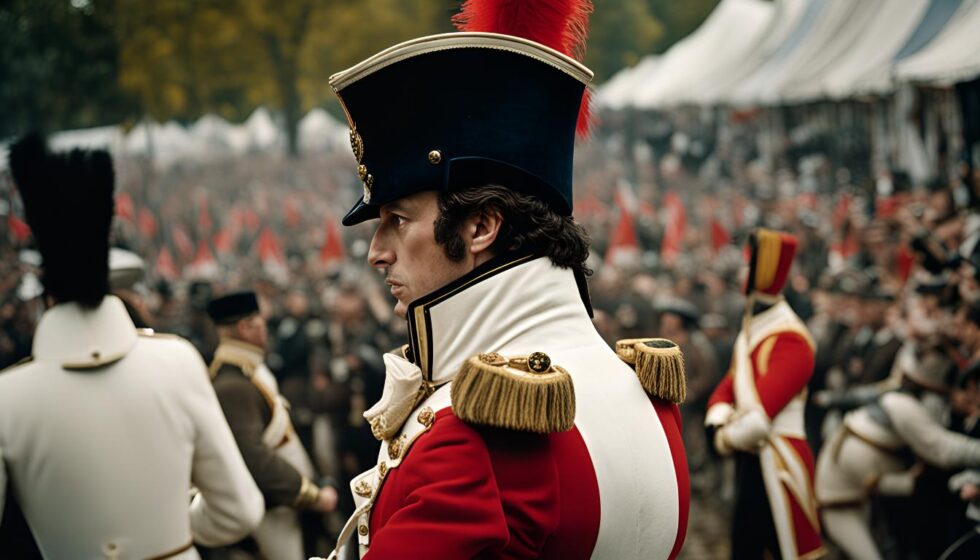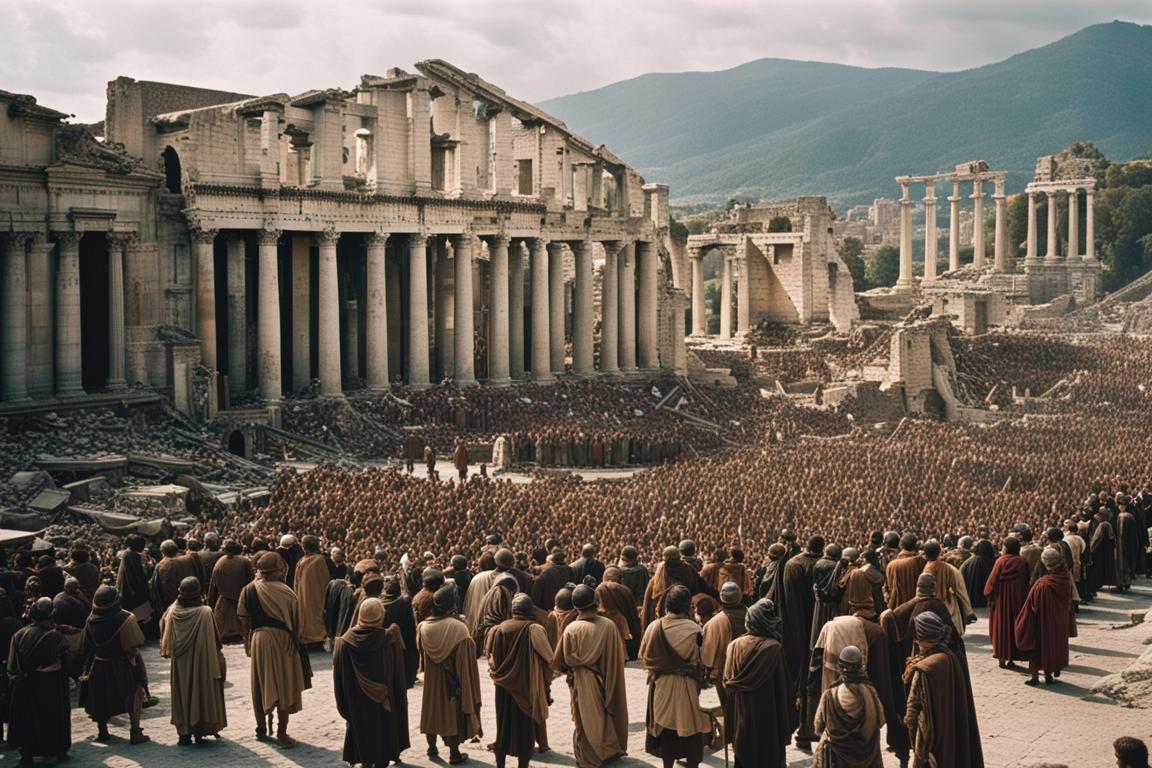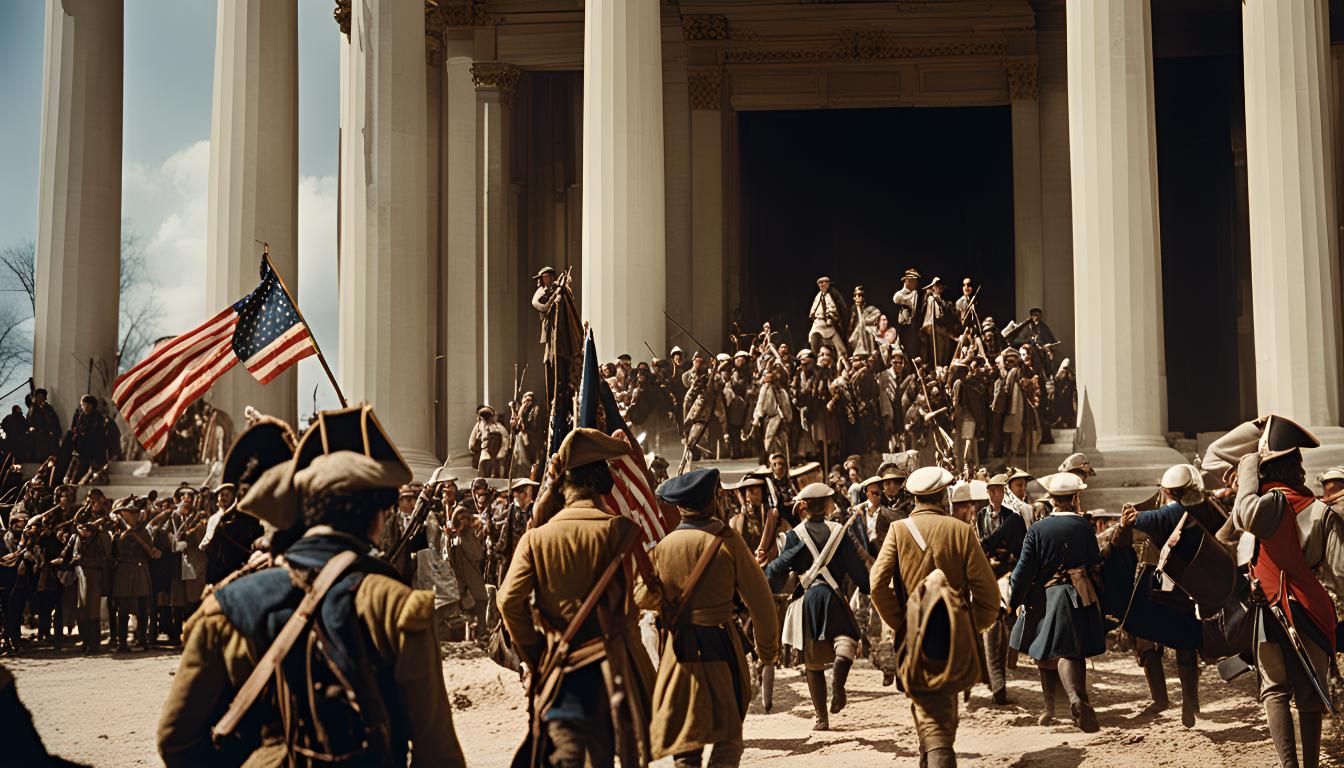
Napoleon Bonaparte stood at the crest of the battlefield, surveying the aftermath of his triumph at Waterloo. The year was 1815, and his victory against the allied forces of Britain, Prussia, and their European allies had cemented his position as the unchallenged ruler of Europe. The consequences of this monumental victory would ripple through history, altering the course of nations and empires.
In the immediate aftermath of the battle, Europe was thrust into a state of shock and awe. The defeat of the Duke of Wellington and Field Marshal Blücher shattered the coalition that had sought to end Napoleon’s reign once and for all. Paris, celebrating the news of their emperor’s victory, became the epicenter of renewed Napoleonic fervor. The allies, disheartened and disarrayed, retreated, leaving Napoleon free to consolidate his power.

The first order of business for Napoleon was to solidify his control over France. He enacted sweeping reforms to stabilize the economy, which had been strained by years of war. To ensure loyalty, he rewarded his generals and key supporters with lands and titles, thereby securing their allegiance. His administration embarked on massive infrastructure projects, rebuilding war-torn regions and revitalizing industry, which garnered him support from both the urban populace and rural peasantry.
Napoleon’s victory at Waterloo had a profound impact on the balance of power in Europe. With Britain reeling from the defeat and the other European powers too weakened to mount another coalition, Napoleon embarked on a series of diplomatic maneuvers to secure his empire. He forged alliances through strategic marriages and treaties, bringing Austria and Russia into his sphere of influence. These alliances, combined with his military prowess, deterred any immediate threats to his dominion.
However, not everyone was content with Napoleon’s rule. In Britain, Prime Minister Lord Liverpool faced immense pressure from Parliament and the public to respond to the French threat. The British economy, heavily reliant on trade, suffered under Napoleon’s Continental System, which aimed to isolate Britain economically. Despite their defeat, Britain began to rebuild its military and sought new alliances outside Europe, strengthening ties with the United States and expanding its influence in India and the Caribbean.
In the heart of Europe, resistance simmered. The Prussian and Austrian armies, though beaten, never fully accepted Napoleon’s dominance. Secret societies and underground movements, such as the German Burschenschaften, emerged, dedicated to the cause of nationalism and liberation from French control. These groups found support among intellectuals and the bourgeoisie, planting the seeds of future uprisings.

Napoleon, aware of the growing discontent, embarked on a campaign to win the hearts and minds of his subjects. He introduced the Napoleonic Code across his empire, standardizing laws and promoting equality before the law, which earned him support from the middle class and legal communities. His emphasis on meritocracy in the military and civil services opened opportunities for many, fostering a sense of loyalty and belonging.
Despite these efforts, the confrontation was inevitable. In 1820, a coalition of disaffected nobles, nationalists, and foreign agents staged a coup attempt in Vienna. The plot, though ultimately foiled by Napoleon’s efficient secret police, revealed the deep-seated opposition to his rule. Napoleon responded with a mixture of repression and reform, cracking down on dissent while also granting limited self-governance to some of the more restive regions.
The most significant challenge came from Spain. The Peninsular War had left deep scars, and guerrilla warfare continued to plague French forces. In 1823, inspired by the spirit of resistance, a massive uprising broke out in Madrid, spreading rapidly across the Iberian Peninsula. Napoleon, now in his mid-fifties, took personal command of the campaign to crush the rebellion.
The conflict in Spain became a protracted and brutal war of attrition. Napoleon’s forces, though superior in numbers and training, struggled against the determined Spanish fighters and their British-backed allies. The war drained French resources and sapped the morale of the army and the French populace.
Ultimately, Napoleon’s campaign in Spain ended in a stalemate. Recognizing the futility of prolonged conflict, he opted for a negotiated settlement. Spain gained nominal independence but remained under heavy French influence, with Napoleon installing a puppet monarch loyal to him. This compromise, though seen as a strategic retreat by some, allowed Napoleon to maintain his broader empire while avoiding further drain on his resources.

The resolution of the Spanish conflict marked the beginning of a new era for Napoleon’s empire. By the late 1820s, Europe had largely accepted the status quo, with Napoleon’s France as the dominant power. The stability he brought allowed for a period of relative peace and economic growth. The technological and cultural advancements of the Industrial Revolution began to spread across the continent, driven by the interconnected economies of the Napoleonic empire.
Napoleon’s legacy, however, remained contentious. To some, he was a visionary leader who brought order and progress to Europe. To others, he was a tyrant whose ambitions led to untold suffering. As the emperor aged, he focused on securing his dynasty, and grooming his son, Napoleon II, to succeed him. By the time of Napoleon’s death in 1835, his empire was firmly established, and Europe had been irrevocably changed by his extraordinary journey from the fields of Waterloo to the throne of a continental empire.




